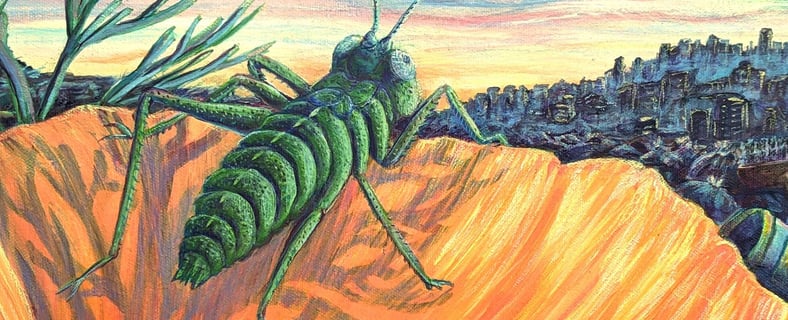Q1: How did you start your business and why?
A: I started my business out of both necessity and passion. After getting my PhD, I was trying to secure a faculty job during budget cuts in the USA. To gain leverage, I applied for a Gates Foundation grant focused on creating food products for malnourished children - my pitch was using insects as a sustainable, secure, nutritious protein source.
When I received the grant, they required an organization, so I filed an LLC. This led to the development of many new insect-based food products and processing methods. I discovered limitations in traditional processing (roasting and grinding insects), which led me to innovate by treating insects like a liquid product that could be spray-dried - similar to how milk powder is produced. This became the basis for my patents.
Over 13 years, I secured grants from USDA, DARPA, and others as one of the first serious players in this field in the US. The business evolved from focusing on sustainable food to include mechanized and automated farming technology as well as genetic engineering of insects for higher vitamin content and using insects to produce vaccines and other non-food products.
Q2: What differentiates you from the competition and why do you think it gives you a competitive advantage?
A: My advantages include:
The breadth and depth of my professional background - from molecular biology to food science, entrepreneurship, supply chain management, and accounting.
Understanding the full value chain from insect farming to product development.
Patents that provide an advantage (though enforcement requires financial backing).
My approach to business is conservative and practical. Unlike competitors who received large investments and burned through cash quickly, I've built incrementally and understand the value of maintaining runway.
I know the true costs and processes because I built everything myself rather than having it handed to me.
Q3: What mistake would you not make again and what did it teach you?
A: My biggest mistake was naivety about the willingness of people to collaborate in the industry – and how easy it might be to bootstrap an ingredient company vs a finished consumer product company (CPG etc.). When I started, there was talk about cooperation and working together, but it was mostly PR.
I chose to be an ingredient company rather than a consumer product company, which made scaling difficult. As an ingredient supplier, you're beholden to food companies as gatekeepers. If they don't want to use insect-based ingredients, you can't sell your product.
The lesson was that launching our own consumer products is necessary to gain market traction and reduce costs through scale. Once we achieve volume production, we can offer ingredients at competitive prices to larger companies.
Q4: What type of funding did you obtain for your business and how difficult was it?
A: My funding came from:
Gates Foundation grant
SBIR grants from USDA
DARPA funding
State-level grants from Oklahoma
About $400,000 in early sales revenue as the world's first wholesaler of insect-based ingredients
The challenge with SBIR grants was that they're often reviewed by academics who evaluate proposals as if they're basic research rather than commercial applications. For example, I was denied funding for an extruded snack product because a professor had published a paper on a similar concept, even though that research wasn't being commercialized.
Q5: Tell me a little more about your non-profit.
A: My nonprofit, the Invertebrate Studies Institute, has two major initiatives:
Sequencing the genomes of all insects on Earth (potentially expanding to all life). This would be the greatest contribution to science in history, providing crucial data for AI algorithms in bioscience, drug discovery, and synthetic biology.
Creating a biodiversity immersion center - a large biodome facility showcasing thousands of species of insects, plants, and other organisms from around the world. This would: Help people experience biodiversity firsthand, support research at a higher level than typical science museums, serve as a resource for researchers, raise awareness about biodiversity loss, and potentially expand to multiple locations worldwide.
The facility would combine public education with cutting-edge research, allowing visitors to see the value of biodiversity while scientists work on genomics, drug discovery, and conservation.
Dr. Aaron T. Dossey is a Ph.D. in Biomedical Science, biochemistry and molecular biology, self-taught entomologist and founder of All Things Bugs, a leading innovator in the insect-based food and feed industry. With a passion for nature and biodiversity, Dr. Dossey explores the untapped potential of insects to improve global food security and promote sustainable agriculture. He is also chief editor and author of the groundbreaking foundational textbook “Insects as Sustainable Food Ingredients” available from Elsevier.





